Ann Voskamp's Blog, page 55
October 29, 2021
How to Deal with Anxiety Beyond Understanding
If you’ve struggled with anxiety, fear, or worry, you are not alone. The truth is, we all get anxious – and the current climate of our world and the daily heartache in front of us doesn’t help. Fear and worry is a part of life for most of us, and a way of life for some of us. But it doesn’t have to be. David Marvin, pastor of The Porch – the young adult ministry of Watermark Church in Dallas, Texas – shares what the Bible says about our fears and worries and how we can strategize differently not if, but when anxiety strikes. It’s a grace to welcome him to the farm’s front porch today…
I was only a day into being married and I was freaking out.
Our wedding had gone off without a hitch: my wife looked beautiful, vows were made, family and friends celebrated with us at the reception, and everything was amazing.
But waking up the next morning beside my new wife, there was something I didn’t expect to be there: anxiety.
A lot of it.
“I thought I was having a panic attack.”
Not anxiety about whether I’d made a mistake getting married or regarding whom I married. Those I had no concerns over. I was panicking about something entirely different: the honeymoon. The honeymoon was my primary contribution to our wedding planning, and I had made sure the place I chose would not disappoint.
We were going to a hotel that prized itself on seclusion, quiet, and relaxation. We were hours from experiencing all this lavishness, and what flooded my mind wasn’t excitement; it was panic. Why?
Well, I am what people would call an extra extrovert. Being alone is not a perk to me. I’m also someone who doesn’t relax well and, honestly, doesn’t really like to try to. I realized I had booked us a honeymoon at my own worst nightmare.
My new wife could soon tell there was something on my mind. When she asked me what was wrong, I told her I thought I was having a panic attack.










The trip came and those eight days were some of the most incredible of my life. We also look back and laugh at how crazy it was for me to be so anxious. The truth is, being anxious about a honeymoon is crazy—not just because it was a honeymoon, but because anxiety is always irrational.
“We are anxious not because we believe it helps but because we don’t know how not to be.”
Let me explain: Being anxious is normal and understandable, but it’s not rational.
Freaking out about the future doesn’t change the future; it just makes you more miserable in the present. Dwelling on anxious thoughts is not helpful to ourselves, those around us, or our circumstances. It adds nothing and only takes away.
Why would we keep doing this? We are anxious not because we believe it helps but because we don’t know how not to be.
The Bible promises that we can experience a peace that “surpasses all understanding” (Philippians 4:7, ESV)—a peace greater than our ability to explain or put into words. If that is promised, why do we rarely feel that peace?
For most of us, the opposite is true: we experience anxiety that goes beyond understanding. We get stuck in moments, or even seasons, of crippling fear and worry that we can’t explain and find hard to express to others.
We experience anxious feelings that paralyze us, keep us from sleeping, rob us of our ability to be present with friends, and just suck the life out of us.
“The Bible gives us real tools that can truly help us fight anxiety, fear, and worry.”
The Bible gives us real tools that can truly help us fight anxiety, fear, and worry.
In fact, the most repeated command in all of Scripture is “Fear not.”
Think about that. God tells us not to fear more than He tells us not to murder, commit adultery, or steal. God tells us not to fear more than He tells us to pray or love our neighbor.
At least 366 times, we are commanded in the Bible not to give way to fear. That is once for every day of the year, even on a leap year. It is clear God does not want us to experience lives owned by fear.
I am married to a licensed professional counselor who has worked primarily with young adults who struggle with anxiety. But as my wife and thousands of counselors would agree, God’s Word should be our first line of defense against anxiety.
If you were to ask the average Christian, “What does the Bible teach about anxiety and worry?” my guess is you would get answers like, “It says to stop” or “It says don’t worry; just pray” or “Don’t be anxious; you just need to trust God.”
All those statements are . . . well . . . kind of true, but not entirely. The teachings throughout Scripture are far more helpful and practical than simply “Stop being anxious.”
“God loves you and doesn’t want you to be ruled by anxiety and fear.”
The word the Bible uses most often for anxiety, worry, and anxiousness is the Greek term merimnao, which means “dwelling on or pondering fearful or anxious thoughts.”
When the Bible says, “Do not be anxious” in Philippians 4:6, it is not saying, “Don’t have anxious thoughts.” That’s impossible. We can’t just not have those thoughts. Rather, it’s saying, “Do not meditate or dwell on those anxious thoughts.”
That is possible; we can choose not to continue ruminating on anxious thoughts.
Think of it like this: you may not be able to stop some burglar from bursting into your house, but you can choose not to invite him to sit down and stay awhile.
None of us wants to live imprisoned by fear, anxiety, and worry.
God loves you and doesn’t want you to be ruled by anxiety and fear.
He invites all of us into lives marked by His peace instead of our panic.
You don’t have to freak out, even if everyone else is.
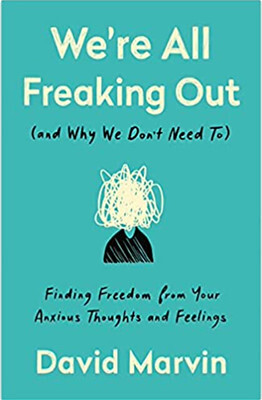
David Marvin serves as the young adults director at Watermark Community Church, where he leads The Porch, a Tuesday night ministry for thousands of young adults that meets across seventeen locations in seven states. In addition to his role as a pastor, his first priority is being a husband to his wife, Calli, who is a licensed counselor.
David is the author of We’re All Freaking Out (and Why We Don’t Need To): Finding Freedom from Your Anxious Thoughts and Feelings. It’s a book to help you free yourself from anxiety by discovering and applying principles given by God to lead us away from panic and toward peace.
Consider this book a practical resource to help you connect the dots between your anxiety and what God has to say about defeating it. As you are about to discover, you really can stop freaking out.
[ Our humble thanks to Waterbrook for their partnership in today’s devotion ]

October 27, 2021
Farming in a Tuxedo: Finding The Power of Place
Today’s blog post is special. Many of you know that I’m married to a farmer, and that we live on the land. The Lord so often speaks to me through everyday parables that are unfolding around me. Daniel Grothe has just written The Power of Place, which is a call to fall back in love with the place in which we are planted. Daniel is a pastor in Colorado Springs, and he lives on a ranch just outside of town with his family and a whole bunch of animals. There’s so much in this message that we need to hear in our age of hypermobility. It’s a grace to welcome Daniel to the farm’s front porch today…
I come from a long line of agrarians, salt-of-the-earth farmers and ranchers, and lovers of the land who lived in small towns across Washington and northern Idaho.
The patches of skin that for decades were exposed to the scorching sun and howling wind—the forearms and hands, the ears, the back of the neck—were permanently transfigured, a collage of various colorations arranged on one body. There’s a reason they call it a farmer’s tan.
As a family, we treasure the fifty years’ worth of daily journal entries that were scribed by my great-great-grandmother Lula Wilson and her daughter-in-law, my great-grandmother, Lucille Kemp Wilson. Lula and Lucille were the most recent matriarchs in my line.
These journals give a glimpse into the life of a family living on a rural farm. You can thumb your way through Lula’s journal and see the textures of a rural community just as the darkness of the Great Depression was descending across the land. Here are a few of those entries from 1930:
June 30: 16 loads of hay hauled in today. Burl [her son], Mick, Elmer and a stranger worked. Lucille and all the children are here. White sow bred today.
September 6: Little yellow calf born.
September 22: Canned 6 quarts of beans, 6 quarts of corn. Fried 2 chickens for dinner. Finished digging potatoes, 10 sacks.
December 25: A beautiful morn—Burl called to wish all a merry Christmas—a wonderful Xmas, grand dinner, the table looked beautiful, the dinner was swell.
Lula was an amputee, having lost a leg to diabetes. Can you imagine the quality of the health care along the back-country roads of small-town Washington?
Health care was virtually nonexistent, but somehow Lula made it. Their existence was spare and spartan, and they prayed that famous line from the Lord’s prayer literally: “Give us this day our daily bread” (Matthew 6:11 ESV).

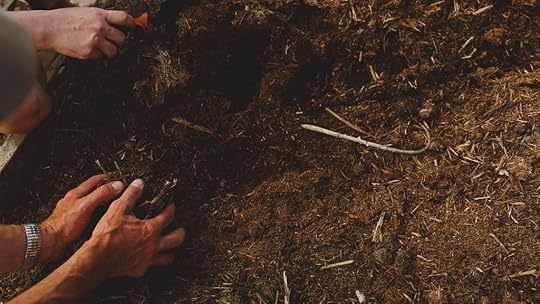

 Great-grandpa Slats with his band
Great-grandpa Slats with his band



 Great-grandpa Slats with his banjo
Great-grandpa Slats with his banjo

On August 17, 1901, Lula had a son who would much later become my great-grandfather. His name was George Burl Wilson. Young George grew tall, and at least to his father’s eyes, his gangly, narrow legs looked like thin boards, like skinny slats of wood. So he was nicknamed Slats.
But my agrarian ancestors were also fantastic musicians. The banjo was their instrument of choice, the rhythmic and melodic backbone of the family band, and whenever they would gather in the living room or around a bonfire, everyone sang their part—soprano, alto, tenor, bass. Great-grandpa Slats demonstrated a knack for the banjo and quickly became a rising star in the region. In his early twenties he started playing professionally, joining the Mann Brothers Orchestra.
This was America’s era of vaudevillian music, of the dance halls and concert saloons, and the seven young men toured the country, playing the Pantages Theater Circuit, a robust franchise with eighty-four theaters across the country.
The Mann Brothers Orchestra played a stretch of weekly shows in Lewiston, Idaho, that had more than 5,000 people dancing on the lawn every Friday night. These guys were small-town boys from Idaho and Washington, and they were taking the nation by storm. Everywhere they played they wore expensive tailored tuxedos, quite a departure from the bib overalls and boots they grew up wearing on their family farms.
But one night in Kansas City, and out of nowhere, my great-grandpa Slats walked off the stage and quit the band. An invisible fault line had shifted in the economy, and the nation was in tremors. Deep fissures were splitting open. They were now seeing the bottom of the Great Depression.
“By wearing his tuxedo to work on the farm, I think Slats was onto something. The land is a place to hallow the Name, a beautiful sacrament to be received and enjoyed.”
Several of Slats’s musician friends were having to stand in soup lines from town to town to find a meal. So he quit, telling his bandmates he’d never be seen standing in a soup line, waiting for a meal. To casual observers, this may sound like pride. But knowing my family heritage as I do, I actually think it was the response of a man who felt duty bound to serve his nation in a moment of national crisis.
Instead of asking for bread, he’d go home and grow wheat that would help feed his country. He grew up on the land and knew how to nurture it into a luxuriant yield. He knew that the nation would need farmers to carry her through these years, so he quit the band, got on the first train heading west from Kansas City, and went back home.
During Slats’s first year back on the farm, he regularly wore his expensive tuxedo as he plowed the fields.
Can you imagine a man riding behind his draft horses plowing a field in a tuxedo? The Pulitzer Prize–winning writer Marilynne Robinson remembered her grandfather working his garden in his best suits too.
“They were just too nice to throw away,” said Great-grandpa Slats.
Slats may have thought he was just being frugal, but I think there is a deeper meaning for those who care to pay attention. We wear tuxedos when we know we’re involved with the sacred. We wear tuxedos when we want to hallow a moment. We wear tuxedos as a threaded signal that we recognize we’ve been tangled up in the eternal.
By wearing his tuxedo to work on the farm, I think Slats was onto something. The land is a place to hallow the Name, a beautiful sacrament to be received and enjoyed.
“The place you are standing is holy as well.”
On his first day back on the farm, I imagine my great-grandpa Slats getting up early and getting ready for the day. He was back to his place of birth, back to the backbreaking work on the land.
There would be no adoring fans to cheer him. There would be no fancy lighting or boisterous introductions. There would be no elevated stage and no one dancing just below it. Just a man, his family land, and a tuxedo.
At the burning bush, Moses was told to take off his sandals, “for the place where you are standing is holy ground” (Exodus 3:5). On that first day, I can imagine Slats hearing something like: Put on your tuxedo. For the place where you are standing is holy ground.
And the place you are standing is holy as well. To the stay-at-home mom, remember that you’re standing on holy ground.
All you schoolteachers, you’re on holy ground.
From the janitor to the junior partner in the law firm, from preschoolers to presidents and prime ministers—and everywhere in between—
we’re all standing on holy ground.
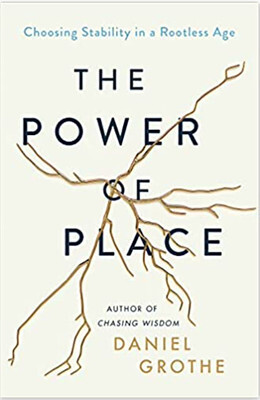
Daniel Grothe is the associate senior pastor at New Life Church in Colorado Springs, Colorado, where he’s been for sixteen years. Daniel and his wife, Lisa, live on a hobby farm outside of town with their three children—Lillian, Wilson, and Wakley—and a thriving throng of happy animals.
In The Power of Place: Choosing Stability in a Rootless Age, Daniel helps us reclaim the ancient vow of stability. He teaches us that our feelings of restlessness open us up to our deepest longing for a lasting community, to our desire to be known, and to our need for a place to call home.
He calls us to reject the myth of Christian individuality and instead embrace the richness of commitment and community, arguing that we must stay in one place as long as we can, plant our lives, and let roots take hold. Because only then can we experience the deep fulfillment, friendship, and fruitfulness God created us for.
[ Our humble thanks to Thomas Nelson for their partnership in today’s devotion ]

October 25, 2021
Refusing to Let God off the Hook
Eugene Peterson was a lifelong pastor, scholar of biblical languages, and translator of The Message Bible. He was keenly aware of how easy it is to feel lost while reading the Bible. To help his congregation and readers find their place amidst the many kings, prophets, and overlapping stories he wrote short introductions for every book. Beautiful yet concise readings that help us find our place in God’s story. It’s a grace to welcome the words of Eugene to the farm’s front porch today…
Job suffered. His name is synonymous with suffering. He asked, “Why?” He asked, “Why me?”
And he put his questions to God. He asked his questions persistently, passionately, and eloquently.
He refused to take silence for an answer. He refused to take clichés for an answer. He refused to let God off the hook.
Job did not take his sufferings quietly or piously. He disdained going for a second opinion to outside physicians or philosophers. Job took his stand before God, and there he protested his suffering, protested mightily.
“Job did not take his sufferings quietly or piously.”
“All I want is an answer to one prayer,
Where’s the strength to keep my hopes up?
What future do I have to keep me going?” Job 6:8, 11
It is not only because Job suffered that he is important to us.
It is because he suffered in the same ways that we suffer—in the vital areas of family, personal health, and material things.
Job is also important to us because he searchingly questioned and boldly protested his suffering. Indeed, he went “to the top” with his questions.









It is not suffering as such that troubles us. It is undeserved suffering. Almost all of us in our years of growing up have the experience of disobeying our parents and getting punished for it. When that discipline was connected with wrongdoing, it had a certain sense of justice to it: When we do wrong, we get punished.
One of the surprises as we get older, however, is that we come to see that there is no real correlation between the amount of wrong we commit and the amount of pain we experience.
An even larger surprise is that very often there is something quite the opposite: we do right and get knocked down. We do the best we are capable of doing, and just as we are reaching out to receive our reward we are hit from the blind side and sent reeling.
This is the suffering that first bewilders and then outrages us. Job was doing everything right when suddenly everything went wrong. And it is this kind of suffering to which Job gives voice when he protests to God.
Job gives voice to his sufferings so well, so accurately and honestly, that anyone who has ever suffered—which includes every last one of us—can recognize his or her personal pain in the voice of Job.
He says boldly what some of us are too timid to say. He makes poetry out of what in many of us is only a tangle of confused whimpers. He shouts out to God what a lot of us mutter behind our sleeves. He refuses to accept the role of a defeated victim.
“I know that God lives—the One who gives me back my life—and eventually he’ll take his stand on earth.
And I’ll see him—even though I get skinned alive!—see God myself, with my very own eyes.
Oh, how I long for that day!” Job 19:25-27
It is also important to note what Job does not do, lest we expect something from him that he does not intend. Job does not curse God as his wife suggests he should do, getting rid of the problem by getting rid of God. But neither does Job explain suffering.
“He does not instruct us in how to live so that we can avoid suffering. Suffering is a mystery, and Job comes to respect the mystery.”
He does not instruct us in how to live so that we can avoid suffering.
Suffering is a mystery, and Job comes to respect the mystery.
“I’ve obeyed every word God has spoken and not just obeyed his advice—I’ve treasured it.But he is singular and sovereign. Who can argue with him?
He does what he wants, when he wants to.
He’ll complete in detail what he’s decided about me,
and whatever else he determines to do.” Job 23:12-15
In the course of facing, questioning, and respecting suffering, Job finds himself in an even larger mystery—the mystery of God.
Perhaps the greatest mystery in suffering is how it can bring a person into the presence of God in a state of worship, full of wonder, love, and praise. Suffering does not inevitably do that, but it does it far more often than we would expect.
Even in his answer to his wife Job speaks the language of an uncharted irony, a dark and difficult kind of truth: “We take the good days from God—why not also the bad days?”
In our compassion, we don’t like to see people suffer. And so our instincts are aimed at preventing and alleviating suffering. No doubt that is a good impulse.
“But when these people go through suffering, their lives are often transformed, deepened, marked with beauty and holiness, in remarkable ways that could never have been anticipated before the suffering.”
But if we really want to reach out to others who are suffering, we should be careful not to be like Job’s friends, not to do our “helping” with the presumption that we can fix things, get rid of them, or make them “better.” We may look at our suffering friends and imagine how they could have better marriages, better-behaved children, better mental and emotional health. But when we rush in to fix suffering, we need to keep in mind several things.
First, no matter how insightful we may be, we don’t really understand the full nature of our friends’ problems.
Second, our friends may not want our advice.
Third, the fact of the matter is that people do not suffer less when they are committed to following God.
But when these people go through suffering, their lives are often transformed, deepened, marked with beauty and holiness, in remarkable ways that could never have been anticipated before the suffering.
So, instead of continuing to focus on preventing suffering—which we simply won’t be very successful at anyway—perhaps we should begin entering the suffering, participating insofar as we are able—entering the mystery and looking around for God.
“What we must realize during those times of darkness is that the God who appeared to Job in the whirlwind is calling out to all of us.”
In other words, we need to quit feeling sorry for people who suffer and instead look up to them, learn from them, and—if they will let us—join them in protest and prayer. Pity can be nearsighted and condescending; shared suffering can be dignifying and life-changing.
As we look at Job’s suffering and praying and worshiping, we see that he has already blazed a trail of courage and integrity for us to follow.
But sometimes it’s hard to know just how to follow Job’s lead when we feel so alone in our suffering, unsure of what God wants us to do.
What we must realize during those times of darkness is that the God who appeared to Job in the whirlwind is calling out to all of us.
Although God may not appear to us in a vision, He makes Himself known to us in all the many ways that He describes to Job—from the macro to the micro, from the wonders of the galaxies to the little things we take for granted.
He is the Creator of the unfathomable universe all around us—and He is also the Creator of the universe inside of us.
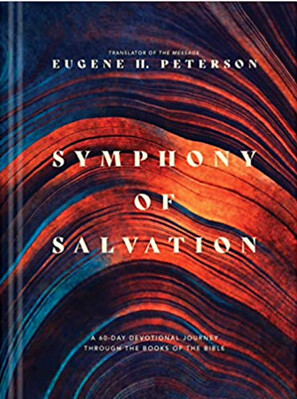
Eugene H. Peterson (1932–2018) was a pastor for thirty years, as well as a theologian and scholar of biblical languages. The author of more than thirty books, he is best known for The Message, his translation of the Bible into contemporary, poetic language. His ministry as a pastor and his writings on theology and spirituality have shaped generations of Christians.
Eugene’s introductions for every book of the Bible have been curated into a 60-day devotional called Symphony of Salvation. Rendered beautifully in full color, this devotional journey will set every day on the right course. Eugene is your insightful guide, pointing out the sights, sound, personalities, and controversies of an ancient world that God still speaks through to your everyday life. The Symphony of Salvation is the perfect resource for your quiet time.
[ Our humble thanks to Tyndale for their partnership in today’s devotion ]

October 22, 2021
When You Need to Know You Never Walk Alone
Ellen Wildman holds firm to the belief that everyone is a theologian. She wants to help others feel like the Bible and theology are accessible to them. Ellen’s adult life has been characterized by change, and the Bible has been her anchor to Truth and peace through it all. If you feel tossed by the waves of change today, read more of Ellen’s story below. It’s a grace to welcome Ellen to the farm’s front porch today…
“Samuel then took a large stone and placed it between the towns of Mizpah and Jeshanah. He named it Ebenezer (which means “the stone of help”), for he said, ‘Up to this point the Lord has helped us!’” 1 Samuel 7:12, NLT
Some fear change. Others love it. Me? After the past year and a half, I hold space for both the beauty and the pain that change can bring.
When I moved to Northwest Arkansas in March 2020 to start my dream job in Bible publishing, I was confident I felt a clear call from God. I packed up my small apartment and my little calico cat, said goodbye to my closest friends, and embarked on a new adventure.
Enter the COVID-19 pandemic. What I envisioned as a season spent making new friends, bonding with my co-workers, and settling in to a new church morphed into a year spent alone battling anxiety and loneliness. One can only make so many Pinterest recipes and DIY crafts. I can confidently say it was the hardest season of my life thus far.
But does the challenge of this season negate God’s calling? Certainly not.
Think about a time you experienced a big transition or faced a significant shift in your life. It may have been an unwanted change or one you saw as good and helpful. Did you wonder how you would possibly get through it?
Whether we view change as positive or negative, it is rarely easy—and it may take a while to find our footing once we get to the other side. Have you ever stopped to look back at the beginning of it all and thought: Did that really just happen? How did I make it through that?
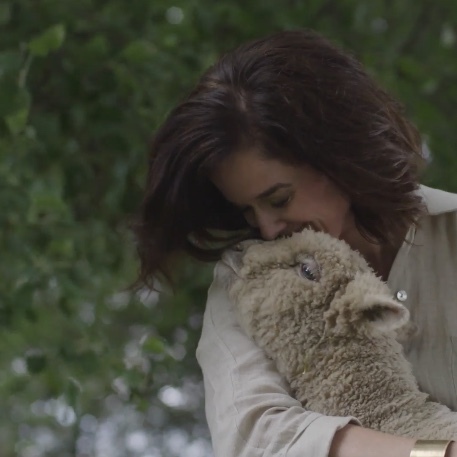





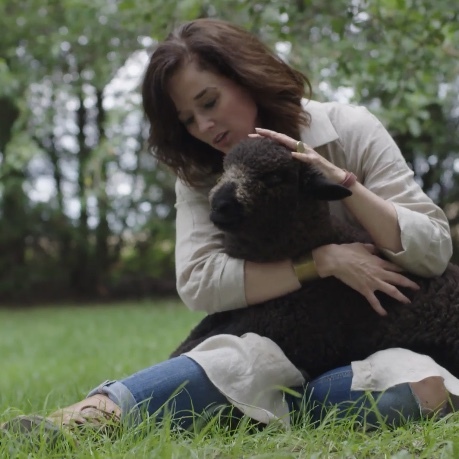



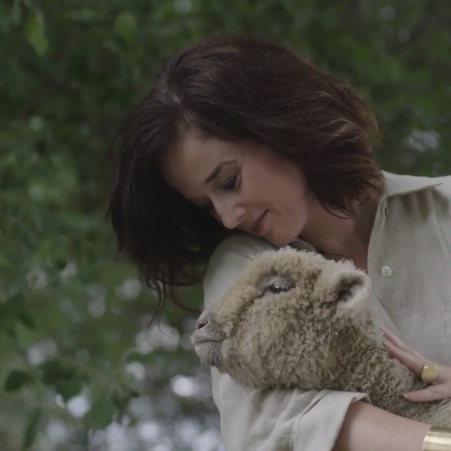


Personally, I can say there were hard moments where I doubted that Arkansas was where I was meant to be. There were moments where I asked God to renew the confidence I had when I made this initial move.
“You too can trust that He not only allowed the journey you took, but He guided you through it and used it for your good in ways you probably aren’t even aware of yet.”
There were even moments where I was too weary to pray and allowed worship music to speak for me.
As I look back now, having recently moved back to Nashville and continuing my job remotely, I’m filled with assurance and a sense of peace.
While the struggle was tough, I see God’s hand, His guidance, clearly both in my move to Arkansas and my eventual transition back to Tennessee. He didn’t waste one moment, and it was all a part of His plan.
He knew where I should be way better than I did and stretched and grew me in beautiful ways as I waded through the deep waters of 2020 and early 2021.
You too can trust that He not only allowed the journey you took, but He guided you through it and used it for your good in ways you probably aren’t even aware of yet.
I’m learning more everyday about how my relationship with God deepened while I was in Arkansas, and the continuation of these surprising lessons gives me peace.
“The more often we remind ourselves (and one another) of how God provides and guides us, the less fear we’ll have about the next leg of the journey.”
As we process all a significant change can mean, one of the most important things we can do is to remember.
Remember how this transition felt in the beginning, how He showed up (sometimes in the least-expected ways), and how generously He guided and encouraged us along the journey.
Many of us have heard the term “Ebenezer,” referring to the stone that was set up by the Hebrew prophet Samuel to commemorate the help God had given the Israelites. Samuel knew it was important not only to express his thanks but to remember what God had done—and to remind His people too.
When we emerge on the other side of a transition, we often forget about the experience and move on with our busy lives. But the more often we remind ourselves (and one another) of how God provides and guides us, the less fear we’ll have about the next leg of the journey.
We know that He has shown Himself faithful and that we can count on Him to be there again.
The story we tell about our journey can be our “Ebenezer.” We can assure ourselves and others that the road ahead will be marked with more altars of remembrance, because He will never stop showing up for us. As the hymn “Come, Thou Fount of Every Blessing” reminds us:
“We know that He has shown Himself faithful and that we can count on Him to be there again.”
“Here I raise my Ebenezer;
Hither by Thy great help I’ve come;
And I hope, by Thy good pleasure,
Safely to arrive at home.”
As Christians, we believe we’re pilgrims passing through this world.
We are headed somewhere unspeakably glorious, but we have good work to do on the way.
Let’s share our stories of how God has guided on the journey, in good times and in bad.
We can all use a reminder that we will never walk alone.
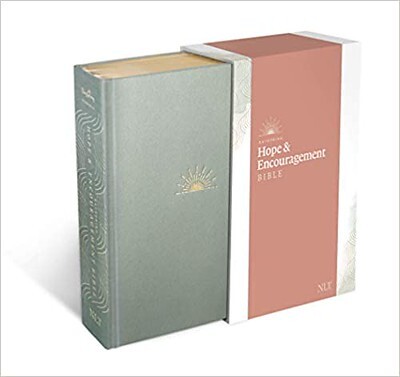
Ellen Wildman is the associate product manager for Bible publishing at DaySpring Cards. She is the product manager for the DaySpring Hope and Encouragement Bible which amplifies twelve indisputable truths about who we are in Christ such as you are known, you are blessed, and you have a reason for hope.
These truths equip readers to recognize and embrace their treasured place in God’s heart. This full-color, wide-margin Bible in the New Living Translation has over 250 DaySpring reflections and 52 full-page devotionals that allow readers to explore and go deeper into the twelve life-changing truths of who we are in Christ.
(Leather-like Navy Blue option offered here)
[ Our humble thanks to Tyndale for their partnership in today’s devotion ]

October 18, 2021
When Life Stirs You Up: Name the Loss
More than once, I’ve told Kristen Strong she’s the world’s most encouraging woman. She’s a tender-hearted, Jesus loving sister who has lived through enough change to answer a question many of us have asked: How do we quiet the simmering stress that difficult change brings, especially when our circumstances aren’t going to calm down anytime soon? As a longtime military wife, mom to three older children, and vulnerable friend, she assures us that God is using our difficult change for us, not against us. Her devotional, When Change Finds You, will help you see your hard and heavy life change in a new, hopeful light. It’s a grace to welcome Kristen to the farm’s front porch today. . .
Do you know what happens when your twin sons leave for college, their little sister has a Texas-sized hole in her heart because of it, and really, your whole house feels positively cavernous without two-thirds of your children within its walls?
Your husband and daughter talk you into getting a new puppy, that’s what happens.
Now, you may have serious reservations about adding another four-legged creature into your family. You may have thought now wasn’t the best time since, oh I don’t know, your sons left for college ten minutes ago.
You may think you need just a minute to actually miss them before bringing something new into your life. But you don’t say these things out loud. Then your daughter finds a cute puppy from a rescue and she sweet-talks her dad into getting said puppy, and you don’t have the energy to fight that kind of megawatt excitement.
So, your family gets the puppy, the same older puppy the rescue told you was “80 percent potty trained.” And then the first morning your puppy is under your roof, he decides to relieve himself on the rug you purchased only a month ago.
The next several days confirm what you already suspected: this puppy is 100 percent not anywhere in the vicinity of 80 percent potty trained.
You realize too that no matter how often you’re told you won’t have to care for him (the biggest lie told to mothers since Cain and Abel first asked Eve for a pet), you’re the one who gets to train the puppy because you work from home. And when he pees yet again on your new dining room rug, you lose your ever-lovin’ mind and consider running up Pikes Peak, screaming like a wild banshee.
Instead, you once again call the carpet cleaning guy who, thanks to this puppy, is funding his child’s college education courtesy of you and your thinning wallet.
Certainly, a new puppy wasn’t the most life-altering change I was going through. However, this loss of time and resources piled upon the bigger loss of missing my boys, and I wasn’t handling it very well.











“Every single change that comes into our lives brings losses, and it’s right and good to lament the losses by naming them and giving them space at the table.”
Every single change that comes into our lives brings losses, and it’s right and good to lament the losses by naming them and giving them space at the table.
Unfortunately, I hadn’t really done that. Instead, I shoved them to the side right alongside my reservations about getting a dog in the first place.
During this season, the Lord brought me to a garden-fresh awareness of a passage of Scripture I’d never considered before:
Now there is in Jerusalem by the Sheep Gate a pool, which is called in Hebrew, Bethesda, having five porches. In these lay a great multitude of sick people, blind, lame, paralyzed, waiting for the moving of the water. For an angel went down at a certain time into the pool and stirred up the water; then whoever stepped in first, after the stirring of the water, was made well of whatever disease he had. (John 5:2–4 NKJV)
It’s fascinating to read that, for someone to be healed, the waters had to first be stirred up. Not only that, but those who entered into the stirred-up waters only did so because they had faith the healing would come.
There is something about things being stirred up that leads to a healing.
And isn’t change what often stirs things up?
“There is something about things being stirred up that leads to a healing. And isn’t change what often stirs things up?”
When change shakes the calm right out of our life, healing can come when we step into the change rather than stay away from it. And it seems that in an effort to step into it, a good place to start is to name the losses change brings.
So, in the spirit of naming my own losses, I had an honest tete-a-tete with my husband, David. I acknowledged to him later what I should’ve acknowledged earlier: I was struggling more than he knew with the boys’ absence. What’s more, I resented adding a dog to the family as it added more change on top of an already transitional season.
Thankfully, David validated my feelings, and he and Faith came up with a schedule that took some pressure off me during the day. Slowly but surely, I became thankful for the puppy’s presence, which went a long way toward helping our daughter through a difficult time.
“Lament acknowledges your honest feelings while also acknowledging the goodness of God.”
I’m still getting used to the loss of parenting three kids full-time at home. But I’m also getting used to naming those losses as they come—and therefore acknowledging this change too.
Whatever the scope of your change, Jesus takes it personally when that change brings you loss.
Go ahead and step into the change by lamenting the loss, because the lament acknowledges your honest feelings while also acknowledging the goodness of God.
And stepping into the change brings you one step closer to accepting it.
This change may feel like the end of things, but God will see you through it.
Then you’ll be able to look at the view in front of you and realize that change is not the end.
God’s grace and goodness are.
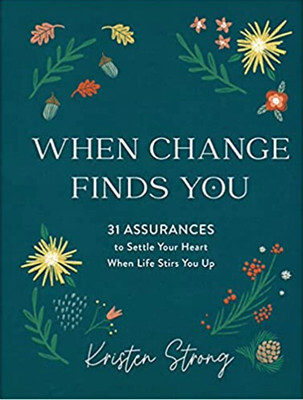
Kristen Strong, author of When Change Finds You and other books too, writes as a friend helping you discover a more hopeful view of the difficult change in your life. She and her USAF veteran husband, David, have three beloved older kiddos. Together, this military family zigzagged across the country (and one ocean) several times before settling in Colorado Springs, Colorado.
In her latest book, Kristen offers a comforting place for you to acknowledge your change, give your anxieties over to God, and abide well in the days to come—no matter what transitions life brings.
When Change Finds You is a 31-day devotional including thoughtful, humorous stories and powerful prayers that will not only help you exchange your anxiety over difficult change for God’s assurances, but it will also help you think and feel differently about change on the inside so you can live and love differently through change on the outside.
[ Our humble thanks to Revell for their partnership in today’s devotion ]

October 16, 2021
Only the Good Stuff: Multivitamins For Your Weekend [10.16.21]
Happy, happy, happy weekend!
Let’s not let the everyday routines numb us to the miracle of living every day! Some real, down in the bones JOY to celebrate today! Links & stories 100% guaranteed to make you smile a mile wide & believe like crazy in a Good God redeeming everything. Never, ever give up…there really is hope, even for us.
Serving up only the Good Stuff for you & your people right here:
 Photo by Courtney Read on Unsplash
Photo by Courtney Read on Unsplash
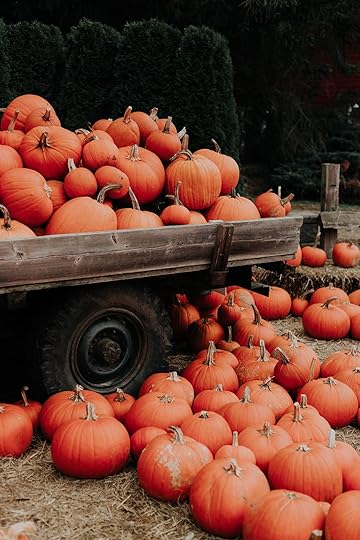 Photo by Priscilla Du Preez on Unsplash
Photo by Priscilla Du Preez on Unsplash
 Photo by Andy Holmes on Unsplash
Photo by Andy Holmes on Unsplashexhale deeply – and go ahead and take that long walk this weekend

Down syndrome stories: 21 things parents wish they knew
Veteran parents describe what it’s actually like to raise a child with three copies of chromosome 21.
In this video, we’ll explore how Jesus is the ultimate king and priest who invites humans back into Eden so that we can once again take up our calling as God’s royal priests.

pause right here: To Be Heavenly Minded Is To Be MORE Earthly Good
never, ever give up
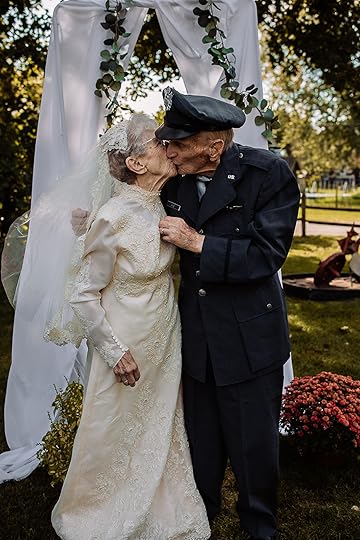 St. Croix Hospice
St. Croix Hospice
 St. Croix Hospice
St. Croix Hospice
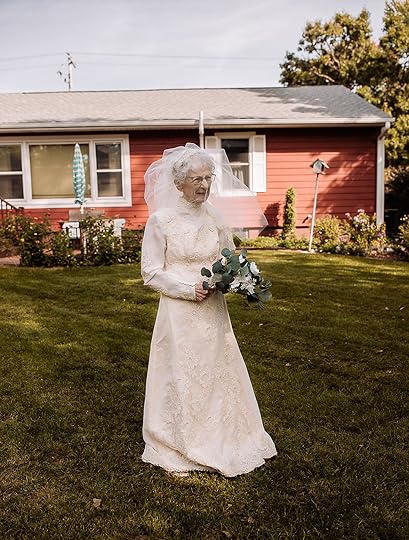 St. Croix Hospice
St. Croix Hospiceoh my heart: Hospice workers help couple in their 90s take the wedding photos they never had
…because someone needs to hear this today…

how 4 young men pushed elderly woman in broken scooter home in pouring rain? priceless
Don’t be afraid to step out in faith

Every year, volunteers at MCC hand-make tens of thousands of hand-made blankets and school kit bags to be sent with relief supplies to people in need around the world.
cannot recommend this highly enough…

because we all need to be encouraged
sharing from here on the farm: These carefully curated quotes from various Christian thinkers are the perfect addition to your daily routine of prayer, meditation, and devotion. They can be framed, pinned to a bulletin board, or tucked into a journal or Bible. Check here to be encouraged to keep company with Jesus
This and so much more at The Keeping Company
so good: how to seek God’s peace in crisis when our natural response is to act in fear

That thing you’re ashamed of?…That choice you’re regretting?…That mistake that’s sent you running and hiding in shame and fear? God’s love for you is bigger than even that, and He is offering you something greater today:
5 people share their stories filled with overwhelming pain and hardship – and tell how their lives were saved by Jesus and His love
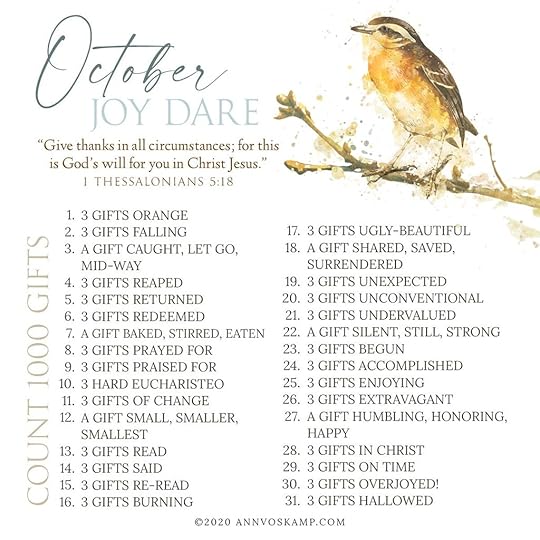

October!
“Whatever you do, do everything…giving thanks” Col. 3:1
God’s will is for us to give thanks in all things…because this is how God knows we can live through anything.
Take the Joy Dare (3 prompts a day to find 3 gifts) – and hang it on the fridge for the whole family to take the #JOYDARE too! Scavenger hunt for God’s glory!
.
Print the month of October Joy Dare, and the entire year of Joy Dares, right here:
And pick up a copy of the new 10th anniversary edition of One Thousand Gifts, and count all the ways He loves you, & fall in love with Him all over again! AND, when you do, you get an entire FREE Joy Tool Kit which includes 5 exclusive printables: a “How to Always Find Joy” Frameable, a Daily Joy Map & Planner, a Family Gratitude Gift Jar kit, a 12-Month Joy Calendar, and a Daily Joy Compass. Click here to learn how you can get yours today!
one to share with a friend: God is Good

Straight up, this whole story had me holding my breath, undone, because who hasn’t at once felt like faith wasn’t reliable…like being a Christian doesn’t really feel real and you wonder if your faith isn’t enough?
BUT THIS MAN’S STORY! Honestly, don’t leave the internet today without reading the incredible faith story that happened to this incredible man — because it’s a story that won’t leave you:
The Least Lovable: And the Unfathomable Mystery of God
glory, glory, glory
because we all need someone to believe in us
kindness counts… come see what she’s been doing

Why Periods Are No Longer a Red Light
Beyond grateful for the life saving work of Compassion International
believe and be encouraged: Almost Home
 Books for Soul Healing:
Books for Soul Healing:

Joy is actually possible, right where you are.
Take the dare to discover: Life is not an emergency…Life is a GIFT. Life is too short to do anything but truly savor it — to count all the ways you truly loved.

What if Brokenness is the Path into the Abundant Life?
You don’t have to be afraid of broken things — because Christ is redeeming everything.
There’s no other authentic way forward — but a broken way — right into a profoundly abundant life.

Journey into a deeply meaningful life with this devotional and take sixty steps from heart-weary brokenness to Christ-focused abundance. The Way of Abundance — is the way forward every heart needs.

Be the Gift is a tender invitation into the next step of deeper transformation, less stress, more joy and abundantly more peace & purpose. You only get one life to love well…to Be The Gift.
on repeat this week: Run to The Father

I don’t know how, but somehow?…maybe our hearts are made to be broken. Broken open. Broken free. Maybe the deepest wounds birth deepest wisdom. We are made in the image of God. And wasn’t God’s heart made to be broken too?
Wounds can be openings to the beauty in us.
And our weaknesses can be a container for God’s glory.
Hannah tasted salty tears of infertility. Elijah howled for God to take his life. David asked his soul a thousand times why it was so downcast.
The thing is? God does great things through the greatly wounded. God sees the broken as the best and He sees the best in the broken and He calls the wounded to be the world changers.
Never ever be afraid of being a broken thing.
And maybe—this is the way to freedom?
You’ve got to remember to just keep breathing—keep believing.
Brokenness can make abundance.
[excerpted from our little Facebook family … come join us each day?]
That’s all for this weekend, friends.
Go slow. Be God-struck. Grant grace. Live Truth.
Give Thanks. Love well. Re – joy, re- joy, ‘re- joys’ again
Share Whatever Is Good.

October 13, 2021
The Least Lovable: And the Unfathomable Mystery of God
Philip Yancey has long been a leading voice on faith and American culture, helping more than fifteen million readers engage some of the deepest questions of life. I have read many of his books over the years, studied his writing, and benefitted from his unique ability to cherish faith while wrestling with so much of religion. With the release of his memoir, Philip is, for the first time, generously giving us a look into the story, the painful memories, and moments of grace that have shaped everything he has written. This honest story from a leading Christian writer gives each of us, no matter our spiritual familiarity, permission to acknowledge the damage the church can cause and encourages each of us to seek the grace of God in spite of it. In an age of deconstruction, divisive politics, and cancel culture, Philip’s story is a deep exhale. His account of a remarkable life inspires questions and thought for us all. As he says, “I’ve experienced some of the worst that the church has to offer, and some of the best.” It’s a grace to share part of his story with you on the farm’s front porch today…
God hangs like a mist over the Bible college campus—sung to, testified about, studied, feared.
Yet for me, whether in family, church, or college, the motions of faith have always proved unreliable. I have proved unreliable.
Too many times I have adopted the guise of a Christian, only to have the reality vanish like vapor.
“Too many times I have adopted the guise of a Christian, only to have the reality vanish like vapor.”
I resign myself to an identity as the campus apostate. Bible college students don’t know what to do with someone like me, a sophomore who argues with their beloved professors, reads Esquire in chapel, and disdains prayer meetings.
Mostly, they avoid me. My girlfriend Janet gets painted with the same brush: she is the only woman in her dorm not assigned a roommate, lest she wrongly influence some impressionable young soul.
In late February of my sophomore year [at a Bible college], Mr. H. gives an assignment to his class: “Write an essay about a time when God spoke to you through a passage of the Bible.”
I have no idea what to write. To my knowledge God has never spoken to me, let alone through the Bible. At times I have parroted the correct answers and prayed the right words, but always with the sense that I’ve memorized the part for a performance. I can’t distinguish the authentic from the fake.
Mr. H. sets the essay’s due date for the following week, and I start reviewing my Sunday School past in order to contrive something acceptable.








 Photo of Philip Yancey by: Steve Starr
Photo of Philip Yancey by: Steve Starr

A few days later the university team gathers for a prayer meeting, as we do every Wednesday. We follow a consistent pattern: Joe prays, Craig prays, Chris prays, then all three pause politely, waiting for me.
I never pray, and after a brief silence we open our eyes and return to our dorm rooms.
With the essay deadline looming, I join the team grudgingly. Joe prays, Craig prays, Chris prays, and they wait the usual few seconds. To everyone’s surprise—most of all my own—I begin to pray aloud.
“In the middle of my prayer, as I am admitting my lack of care for our designated targets of compassion, the parable comes to me in a new light.”
“God . . . ,” I say, and the room crackles with tension. A door slams down the hall. “God, here we are, supposed to be concerned about those ten thousand students at the university who are going to Hell. Well, you know that I don’t care if they all go to Hell, if there is one. I don’t care if I go to Hell.”
I might as well be invoking witchcraft or offering child sacrifices. Even so, these are my friends, and no one moves. I swallow hard and continue.
For some reason I start talking about the parable of the Good Samaritan, which one of my classes has just been studying. “We’re supposed to feel the same concern for university students as the Samaritan felt for the bloodied Jew lying in the ditch,” I pray. “I feel no such concern. I feel nothing.”
And then it happens. In the middle of my prayer, as I am admitting my lack of care for our designated targets of compassion, the parable comes to me in a new light.
I have been visualizing the scene as I speak: a swarthy Middle Eastern man, dressed in robes and a turban, bending over a dirty, blood-stained form in a ditch. Without warning, those two figures now morph on the internal screen of my mind.
The Samaritan takes on the face of Jesus. The Jew, pitiable victim of a highway robbery, also takes on another face—one I recognize with a start as my own.
In slow motion, I watch Jesus reach down with a moistened rag to clean my wounds and stanch the flow of blood. As He bends toward me, I see myself, the wounded victim of a crime, open my eyes and spit on Him, full in the face.
“In my arrogance and mocking condescension, maybe I’m the neediest one of all.”
The image unnerves me—the apostate who doesn’t believe in visions or in biblical parables. I am rendered speechless. Abruptly, I stop praying, rise, and leave the room.
All that evening I brood over what took place. It wasn’t exactly a vision—more like a vivid daydream or an epiphany. Regardless, I can’t put the scene out of mind. I have always found security in my outsider status, which at a Bible college means an outsider to belief. Now I have caught a new and humbling glimpse of myself.
In my arrogance and mocking condescension, maybe I’m the neediest one of all.
A feeling of shame overwhelms me. Shame that my facade of self-control has been unmasked.
And also shame that I might end up as one more cookie-cutter Christian on this campus.
Part of me—a rather large part—expects this to pass. How many times have I gone forward to accept Jesus into my heart, only later to find him missing? I feel a kind of sheepish horror at regaining faith. But I also feel obliged to admit what has taken me unawares, a gift of grace neither sought nor desired.
I date my conversion from the tiny prayer meeting in a sparsely furnished dorm room. Some five decades later, it still stands out as the singular hinge moment of my life.
That Wednesday evening the sand gave way beneath my feet and I had no clue where the next wave would sweep me.
Sometime later I recounted the experience to a skeptical friend. He pointed out that there are, of course, alternative explanations for what happened. For years I had been reacting against a fundamentalist upbringing, and undoubtedly that repression had created a deep “cognitive dissonance” within me.
Since I had gone so long without praying, should it surprise me that my first prayer, no matter how untraditional, would release a flood of emotions that might induce a “revelation” like that of the Good Samaritan parable?
I smiled as he talked, because I recognized myself in his words.
“In the end, my resurrection of belief had little to do with logic or effort and everything to do with the unfathomable mystery of God.”
I had used similar language to explain away the personal testimonies of scores of my fellow students. Conversions only make sense from the inside out, to the fellow-converted. To the uninitiated they seem a mystery, or a delusion.
Years later, I received a letter from a Christian philosopher researching conversions. I gave him an abbreviated account of mine, and he wrote back, surprised that I had not responded with convincing rational arguments.
Are you a fideist? he asked. I had to look up the word in a dictionary: One who believes based on faith rather than scientific reasoning or philosophy.
“I don’t know,” I replied.
“All I know is that the event happened, the surest event in my life, and one that I had neither planned nor orchestrated. I cannot possibly erase those moments from my life. I felt chosen.”
In the end, my resurrection of belief had little to do with logic or effort and everything to do with the unfathomable mystery of God.

Philip Yancey wrestles in print with God, with the church, and with fellow believers. In the process he has authored more than two dozen books, including the bestsellers The Jesus I Never Knew, What’s So Amazing About Grace, and Soul Survivor: How Thirteen Unlikely Mentors Helped My Faith Survive the Church. Yancey’s books have garnered thirteen Gold Medallion Book Awards from Christian publishers and booksellers. He currently has more than seventeen million books in print and has been published in over fifty languages world- wide. Yancey worked as a journalist
Where the Light Fell is Philip Yancey’s long-awaited memoir, a gripping family drama in which Philip describes his journey from a fear-based faith to one of grace. Along the way, he shares unforgettable stories from his fundamentalist southern upbringing while reflecting on the nature of love—how a mother’s love can be twisted into its opposite; how the love of a community can be turned against outsiders; how the love of God can be obscured by those who speak in God’s name; and how love yet manages to find us against all odds.
[ Our humble thanks to Penguin Random House for their partnership in today’s devotion ]

October 11, 2021
Why We No Longer Need to Hide
It’s been a privilege to welcome Anne Graham Lotz to this page over the years, so it’s a particular joy to have her daughter, Rachel-Ruth Lotz Wright, join her today as well. Anne and Rachel-Ruth may come from a well known family, but as you can see from this beautiful story, they’re passionately honest about their need for God’s grace! As they remind us, a witness that is lived can be even more powerful than one that is spoken. It’s a grace to welcome them to the farm’s front porch today….
guest post by Anne Graham Lotz and Rachel-Ruth Lotz Wright
While we need to speak up and share the truth, a witness that is lived may be even more powerful than one that is spoken.
It’s not just what you and I (Anne) say but who we are that catches the attention of those around us.
As you read Rachel-Ruth’s story, I believe this truth will be fleshed out in living color…
A common misconception about our family is that we all must be saints. In reality, we are all a bunch of sinners, often making mistakes and in need of discipline, correction, and grace.
One of the most powerful moments of grace in my (Rachel-Ruth’s) life happened after yet another knock-down, drag-out fight with my sister, Morrow.
Usually when one of us did something to upset the other, we would draw an invisible line down the middle of the bedroom we shared and forbid the other person to cross it—or else. The “or else” usually involved throwing things or hitting each other. Really mature stuff.
On this particular afternoon, I did something to push Morrow beyond the limits of her patience. She chased me out of our room, down the stairs, through the kitchen, and around the corner toward the back door.
Running for my life, I felt terror spurring me on. Still, Morrow was closing in fast. My memory of the scene is all in slow motion. As I rounded the corner, I could see the glass door ahead barring my way to freedom. I opened the latch as fast as I could, and in my adrenaline-fueled panic, I slammed it right as Morrow reached me.
What I hadn’t anticipated in that moment of victory was that the glass would shatter on impact. Into a million shards.





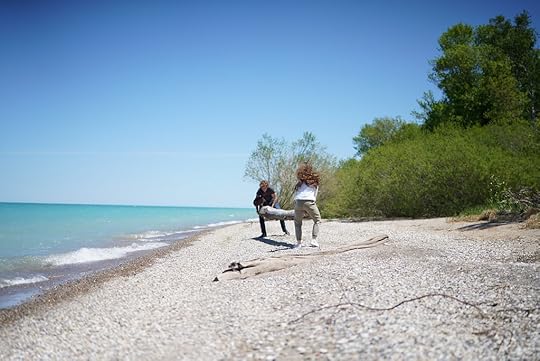
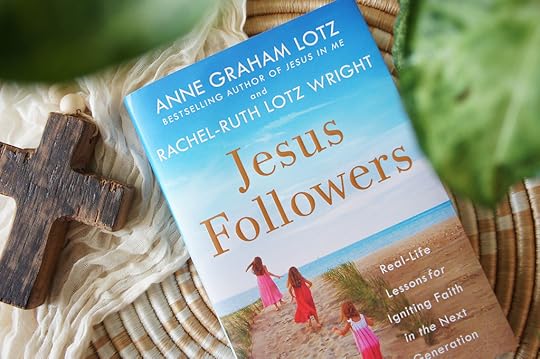



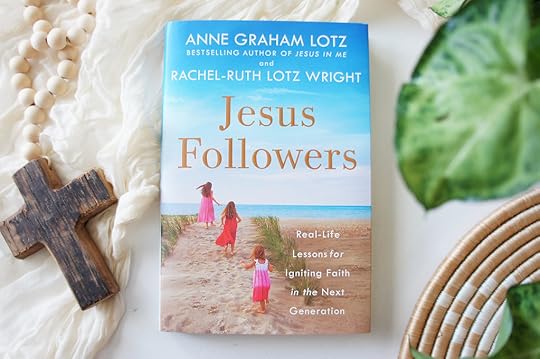

Much to my shame, I didn’t even turn around to look. I knew I was as good as dead. My mom and dad were so authoritative that George Washington, Napoleon, and General Patton all would have stood at attention and saluted if they ever heard their names called by either one.
In the wake of the shattering glass, my sense of guilt and the certainty of the dire consequences to come sent me running to the best hiding spot I could think of: the back-seat floorboard of my mom’s navy-blue station wagon. I roasted in the close confines of the stifling car. But I really started to sweat when I heard Mom calling me. Chills snaked up my spine, as if I were playing in some horror version of hide-and-seek.
My mom came into the garage, yelling my name. Eight years of obedience training had taught me to respond when being called.
“We deserve death for our sins, but God sent His Son to the cross to take away our sins and give us eternal life.”
I knew I had stalled long enough. I opened the door of the car and climbed out, my face on fire from embarrassment and shame. My mom said in a booming voice, “Go to your room!” If she said anything else, I didn’t hear it over the locomotive roar of blood rushing through my veins.
My parents must have known that solitude would give me time to think about my actions. I felt horrible as I wondered whether Morrow had gotten hurt. I also felt horrible as I wondered about the pain to be inflicted on my backside. I contemplated packing my pants with stuffed animals to cushion the sting of the spankings that were sure to come. As if my dad wouldn’t notice the shape of Peter Rabbit under my sweatpants!
Then I heard the familiar creak of our stairs, and I knew my dad was coming. I braced myself for the look of disappointment and the inevitable consequences. Dad came in and sat down on the edge of my bed, causing the springs to squeak. I remember the lights weren’t on, but the late-afternoon sun cast shadows across the room.
What happened next took me completely by surprise. “Rach, I want to teach you about grace,” my dad said. “What you did was wrong. You deserve to be punished and spanked. But instead of punishing you for breaking the glass door, I am going to take you to get ice cream.”
I felt like time had frozen while my brain processed what I was hearing. I began to cry. Dad went on to explain that his grace to me was a picture of God’s grace to us. We deserve death for our sins, but God sent His Son to the cross to take away our sins and give us eternal life.
“The magnificent thing that no human brain can ever fully grasp is how deep and wide is God’s love for us.”
When we place our faith in Jesus, we no longer live under the horror of knowing our sins are sending us to hell. Instead, because of His grace, we are forgiven and blessed, and we can walk in freedom.
I think that was the first time I truly grasped what grace is, and I’ve never forgotten it.
So many times we run from God. We want to hide because we know we are guilty. We are ashamed and afraid of the punishment that we surely deserve.
The magnificent thing that no human brain can ever fully grasp is how deep and wide is God’s love for us.
He knows where we are hiding and why we are hiding.
Yet He comes to us, wraps His arms around us, and extends His grace to us.
He wipes away our sin—forever!
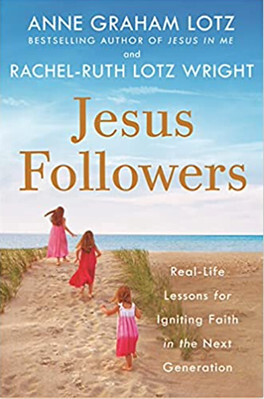
Anne Graham Lotz—called “the best preacher in the family” by her father, Billy Graham—is an international speaker and the bestselling and award-winning author of numerous books, including Jesus in Me and The Light of His Presence. Anne is the president of AnGeL Ministries in Raleigh, North Carolina, and the former chairperson for the National Day of Prayer.
Today’s devotion is taken from Jesus Followers, the first book Anne has written with her daughter, Rachel-Ruth Lotz Wright. Rachel-Ruth serves on the board of directors for AnGeL Ministries, in addition to chairing the weekly prayer team that undergirds her mother’s ministry. Rachel-Ruth and her husband, Steven, live in Raleigh, North Carolina, with their three daughters.
An inspiring guide to passing truth on to the next generation, Jesus Followers gives us a delightful, rare look into the living rooms and prayer closets of this remarkable family. As you can tell from Rachel-Ruth’s story today, we have much to learn from the grace, humor, and example of these two women who seek to pass on God’s truth through word, example—and sometimes an unexpected, grace-filled ice cream treat.
[ Our humble thanks to Multnomah for their partnership in today’s devotion ]

October 9, 2021
Only the Good Stuff: MultivitaMins For Your Weekend [10.09.21]
Happy, happy, happy weekend!
Let’s not let the everyday routines numb us to the miracle of living every day! Some real, down in the bones JOY to celebrate today! Links & stories 100% guaranteed to make you smile a mile wide & believe like crazy in a Good God redeeming everything. Never, ever give up…there really is hope, even for us.
Serving up only the Good Stuff for you & your people right here:
 Photo by Johannes Plenio on Unsplash
Photo by Johannes Plenio on Unsplash Photo by Debby Hudson on Unsplash
Photo by Debby Hudson on Unsplash
 Photo by Aaron Burden on Unsplash
Photo by Aaron Burden on Unsplashexhale: maybe today is the perfect day for a long quiet walk?
maybe the best way to travel these days?!?

inspiring: mower mission reaches 50 states
helping those who need it most
one of the very best presents

because we all need to be encouraged
sharing from here on the farm: These carefully curated quotes from various Christian thinkers are the perfect addition to your daily routine of prayer, meditation, and devotion. They can be framed, pinned to a bulletin board, or tucked into a journal or Bible. Check here to be encouraged to keep company with Jesus
This and so much more at The Keeping Company
what a story – never, ever give up

this one is just too good to miss: Be a Point of Light

must come see what she’s doing!
In this video, we’ll explore David’s role as a priestly king and his failure to live up to this calling. The story of David ultimately points to the arrival of Jesus, the true royal priest who will bring the blessings of Eden and restore humans to their divine calling.


Hello and welcome, October!
“Whatever you do, do everything…giving thanks” Col. 3:1
God’s will is for us to give thanks in all things…because this is how God knows we can live through anything.
Take the Joy Dare (3 prompts a day to find 3 gifts) – and hang it on the fridge for the whole family to take the #JOYDARE too! Scavenger hunt for God’s glory!
.
Print the month of October Joy Dare, and the entire year of Joy Dares, right here:
And pick up a copy of the new 10th anniversary edition of One Thousand Gifts, and count all the ways He loves you, & fall in love with Him all over again! AND, when you do, you get an entire FREE Joy Tool Kit which includes 5 exclusive printables: a “How to Always Find Joy” Frameable, a Daily Joy Map & Planner, a Family Gratitude Gift Jar kit, a 12-Month Joy Calendar, and a Daily Joy Compass. Click here to learn how you can get yours today!
A social experiment was conducted asking people to say what they can’t do.
But then, when the question was turned around to their loved ones — their answers told a different story.

Encouragement for Beginners: How to Strengthen a Soul in God
in case you need to be reminded too? Thankful for the scars…

A few times a year, I leave the warmth of these home fires and these seven hearts I love deep, and gather with the Body to meet Him.
It’s our quiet offering and privilege, to come with you, and simply, humbly, go before Him…
it would be a grace to meet you at one of these upcoming events!

Ever find it hard to pray? Searching for the perfect way, the perfect place, the perfect time, the perfect words? Prayer matters more than anything else, so we have to figure this out:
What Do We Pray When We Don’t Have the Words?
Trusting God in the Midst of Suffering: Meet Sherif
Beyond grateful for the life saving work of Compassion International
The Power of Hope: Dare to Believe
glory, glory, glory
a most unexpected mission: the next best thing to the hand of God

If you’ve ever felt like you don’t really belong, that you’re not enough…ever struggled to recognize the beauty that is your life…these words of hope are for you today:
How Your Heart Should Respond When You’re Told You Don’t Belong
Priscilla Shirer joins Laurie Crouch and Holly Wagner on TBN’s Praise to discuss prayer, hearing the voice of God, and growing in our relationship with Him. Let’s listen in as they discuss different ways that we can actively pursue growing closer to God as we learn to pray intentionally.
 Books for Soul Healing:
Books for Soul Healing:

Joy is actually possible, right where you are.
Take the dare to discover: Life is not an emergency…Life is a GIFT. Life is too short to do anything but truly savor it — to count all the ways you truly loved.

What if Brokenness is the Path into the Abundant Life?
You don’t have to be afraid of broken things — because Christ is redeeming everything.
There’s no other authentic way forward — but a broken way — right into a profoundly abundant life.

Journey into a deeply meaningful life with this devotional and take sixty steps from heart-weary brokenness to Christ-focused abundance. The Way of Abundance — is the way forward every heart needs.

Be the Gift is a tender invitation into the next step of deeper transformation, less stress, more joy and abundantly more peace & purpose. You only get one life to love well…to Be The Gift.
on repeat this week: Wait on You

…you know how you’re sticking with it & doing that hard thing? You’ve just gotta know, you don’t stand alone, you don’t walk alone, you don’t go alone:
“But the Lord stood at my side and gave me strength” 2 Timothy 4:17
And nothing can happen today that will stop Him from sticking right there with you & giving you strength to do this thing.
There is nothing to fear today —
because there is nothing, not mess-ups, not distractions, not less-than-hoped-fors, nothing in the universe that can happen today to separate you from the loving hands of God.
There is nothing to fear no matter what —
because there is nothing, not sickness, not pain, not diagnosis, Not Even Death, nothing in the universe that can ever separate you from the loving hands of God.
There is Never. Anything. to fear — because there is Nothing in the universe that can Ever. separate. you. from the loving hands of God.
So Go Live Brave! His Love Makes You Brave!
[excerpted from our little Facebook family … come join us each day?]
That’s all for this weekend, friends.
Go slow. Be God-struck. Grant grace. Live Truth.
Give Thanks. Love well. Re – joy, re- joy, ‘re- joys’ again
Share Whatever Is Good.

October 8, 2021
How Your Heart Should Respond When You’re Told You Don’t Belong
“I wanted to grow up and leave behind everything that made me feel weird, flawed, and broken,” Bonnie Gray confessed to me. The daughter of a mail-order bride and a busboy from San Francisco’s Chinatown, Bonnie’s journey is uniquely hers, yet her struggles—with insecurity, identity, and the intense need to belong—are shared by so many of us. Her story is an inspiring reminder of how God transforms what the world has broken into something He makes beautiful. In a world crying out for kindness and belonging, this is a book needed for our times. Her new book, Sweet Like Jasmine is the gift, a beautiful remembrance that God treasures each of our broken hearts in His sweeping story of redemption. It’s a grace to welcome Bonnie to the farm’s front porch today…
My mother worked as an embroidery seamstress when she first immigrated to America, earning scraps of money sewing beads into intricate shapes of peonies, white cranes, and—my favorite—peacock feathers on cheongsams.
A cheongsam (or chi-pao as pronounced in Mandarin) was a body-hugging, one-piece Chinese silk dress, custom-tailored for women in well-to-do society.
I’d see the silk dresses laid out on the sofa, sprawling to the floor in a full array of pinks, purples, pearl whites, and iridescent crystals glittering in silver and gold. When the light hit, the assortment of shiny, disc-shaped sequins cast shimmering patterns onto the walls of our dark apartment.
Ah-Ma worked on many dresses at a time, placing them side by side, each in different stages of progress. When my mother wasn’t looking, I’d run to stand in front of the hallway mirror, carefully pull the fabric up to my chin, and pretend I was a beautiful model standing up on my tippy toes.
I always wondered when I would get to wear a cheongsam of my own. Once, Ah- Ma caught me trying a dress on.
“What are you doing? Take it off.”
A minute ago, I had thought I looked utterly fabulous. Now, my cheeks flushed with embarrassment.
“Your dress is so pretty, Ah-Ma.”
“You look cheap.” You could only wear a cheongsam well, Ah-Ma told me, if you had quality: what she called hay-jut.
Without it, I would only end up looking cheap in a dress.



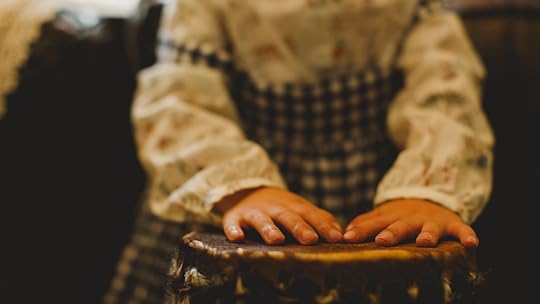

 Joy Prouty
Joy Prouty
 Joy Prouty
Joy Prouty

“It was easier to close my heart and be functional, fulfilling a goal, performing and meeting other people’s expectations, than to believe something beautiful could be seen in me.”
“Do I have hay-jut?” I asked.
“Have to see. You talk too much. Hay-jut all gone.”
My mother never really explained how you actually got hay-jut. This elusive quality of worth was something I had to earn, to be worthy of wearing something so beautiful. Beauty wasn’t something I already possessed, but something I needed to prove existed in me within the eyes of another—in someone else’s estimation.
As I internalized my mother’s critical words about my appearance, I wasn’t trying to be self- loathing. I learned to be content without being beautiful. I didn’t need it. This is how I learned as a little girl to hope for safe things. It was easier to close my heart and be functional, fulfilling a goal, performing and meeting other people’s expectations, than to believe something beautiful could be seen in me.
This way of life is lonely for the soul. I was numb to delight. I worked hard to gain comfort by people-pleasing—being smart and useful, rather than feeling joy or beauty.
And I came to see my story and my cultural heritage the same way. My home. My childhood, my memories, my face, my body, my clothes, our living room filled with used, mismatched furniture passed on to us, our kitchen covered in faded wallpaper, and my crooked teeth because we couldn’t afford braces. My life just felt ill-fitting.
As I remembered standing in front of the hallway mirror long ago, lowering the exquisite silk dress which I no longer felt worthy to lift into view, God was inviting me to pick up the unfinished folds of the stories in my life again.
Being unfinished didn’t make me less beautiful, just like the dresses laid across the sofa were lovely even in their unfinished state. Each dress was custom cut to fit the woman it belonged to—each garment measured for her every curve and embroidered with her unique design.
What if my life, however unfinished, no matter how seemingly different from another person’s life, was beautiful simply because it was my life, the one God gave me?
“What if my life, however unfinished, no matter how seemingly different from another person’s life, was beautiful simply because it was my life, the one God gave me?”
God was showing me that the masterpiece He was creating in me was both unfinished and beautiful. God was bringing together the different fabrics in my life that I viewed as ill-fitting and was clothing me with His love and acceptance, embroidering my unique quirks and personality to custom fit His grace into my life, to show His handiwork.
I remembered how soft the silk felt in my hands. I remembered how my favorite cheongsam, embroidered by my mother, glowed as I tried it on: a pink silk dress emblazoned with an opalescent, sequin-embroidered peacock, whose magnificent feathers flowed from waist to hem, shimmering as I moved.
I remembered I once felt beautiful.
I thought I was disqualified from beauty, but it has always been there. I just didn’t look for it. I had forgotten that part of myself, but God did not forget. Among the broken pieces of my heart, God saw beauty.
As I pictured the little girl staring at the mirror in the pink dress many sizes too big, I saw Jesus there beside me in the quiet. I felt the gentle touch of God’s hand on mine. And for first time in a long time, the little girl in me remembered that she once had believed she was beautiful. The sound of her tears came softly, like the gentle trickle of a creek you happen upon on the day winter is awakened by spring.
“There are no rules to beauty, because what brings you joy, peace, and comfort is unique to how God designed you to see beauty.”
You don’t have to hide your beauty . You are your own kind of beautiful.
There are no rules to beauty, because what brings you joy, peace, and comfort is unique to how God designed you to see beauty. Someone may have said you weren’t worthy of beauty. They were wrong.
God is making something beautiful in you. God sees your beauty.
Your life is like a lovely silk dress, free to embroider the way you choose. You don’t have to look or act like anyone else or fit into any mold to make a beautiful life.
Your loving Creator made you an original.
“Our Father, we are the clay, you are the potter; we are all the work of your hand” (Isaiah 64:8).
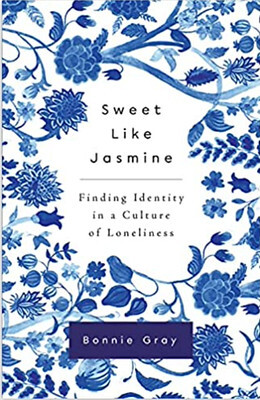
Bonnie Gray is the author of Whispers of Rest and Finding Spiritual Whitespace. Her latest book is Sweet Like Jasmine. An inspirational speaker as well as the host of the podcast Breathe, Bonnie touches thousands of lives every year using storytelling, soul care, and prayer. Her writing is featured in numerous Christian media outlets including Relevant Magazine and Christianity Today.
In Sweet Like Jasmine, Bonnie shares the journey of self-realization she embarked upon as a 39- year-old woman who’d spent her life until then trying to hide the parts of herself that seemed unlovable. Determined to uncover her family’s secrets and understand the home she was born into, she returned to San Francisco’s Chinatown, where she made soul-shaking discoveries about her identity, human kindness and what it truly means to belong. This is a book that celebrates how God uses our unique and broken stories to create a beautiful mosaic of His love, one life at a time.
[ Our humble thanks to Harvest House for their partnership in today’s devotion ]

Ann Voskamp's Blog
- Ann Voskamp's profile
- 1368 followers



